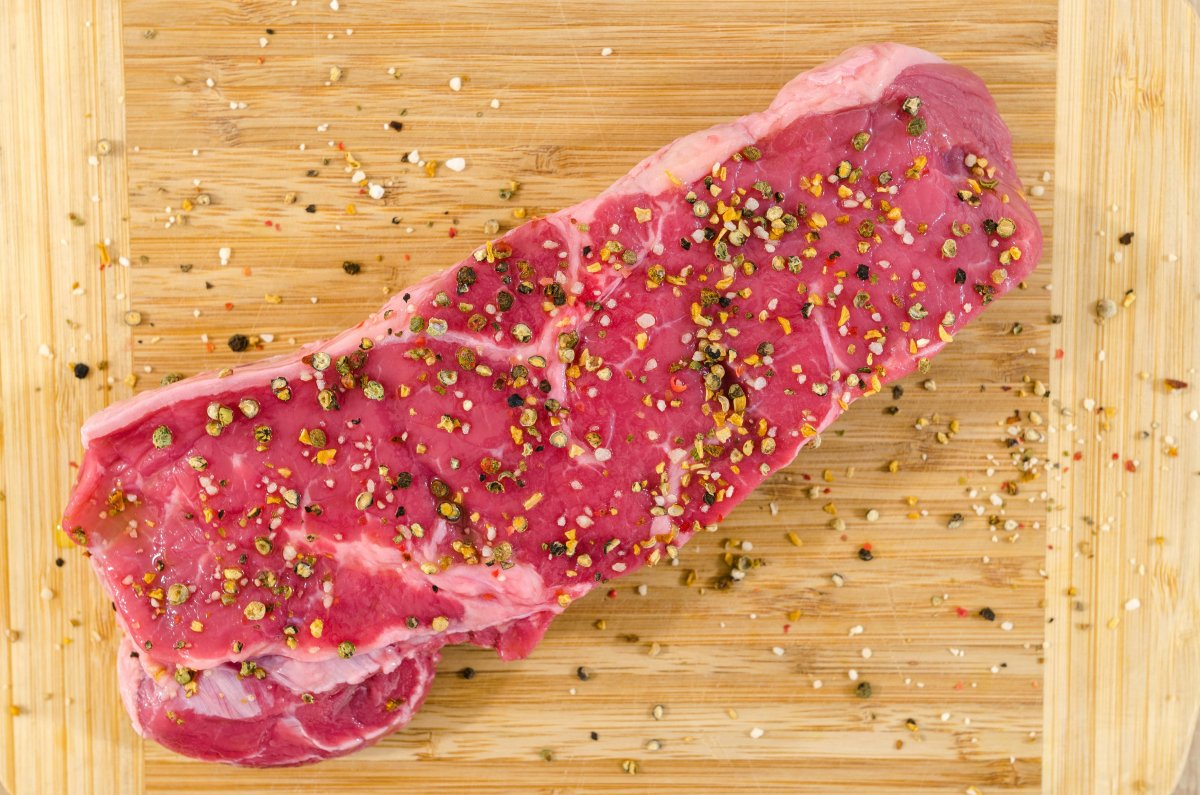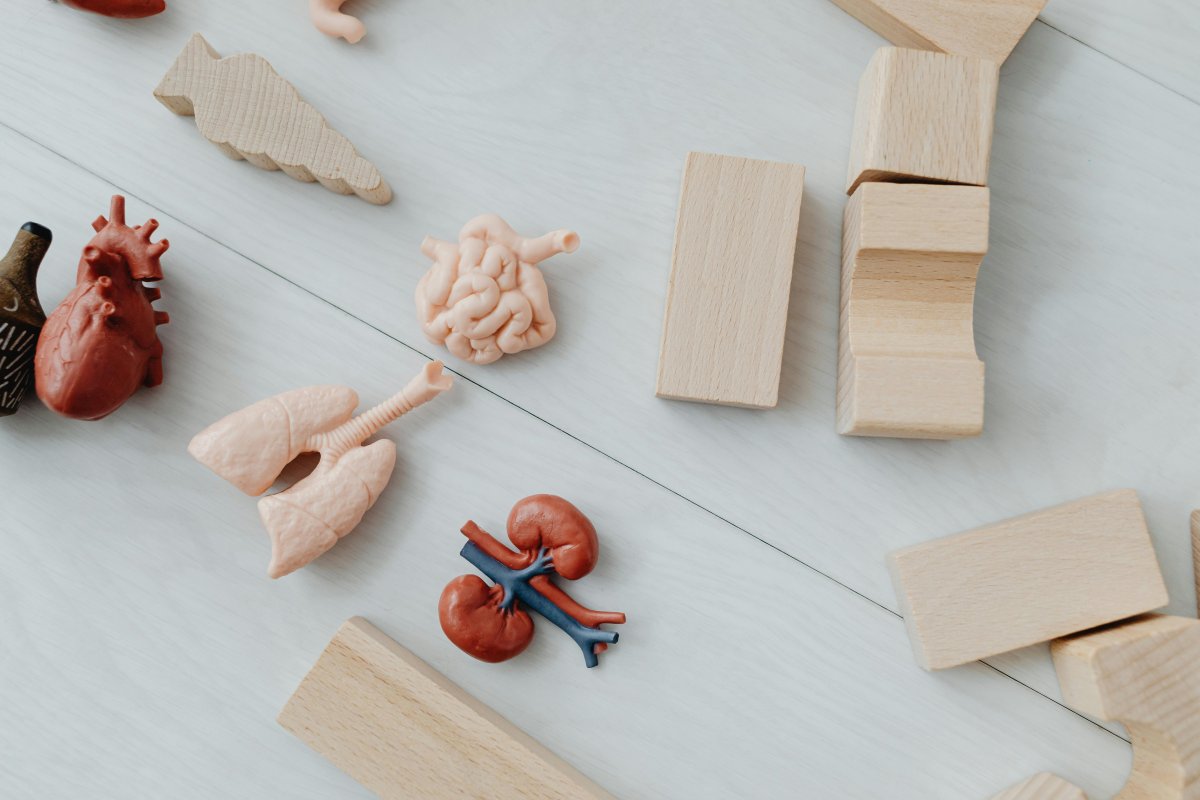Last Updated on: 19th October 2024, 12:35 pm
Introduction to High-Protein Diets

High-protein diets have surged in popularity, recognized for their role in weight management and muscle building. These diets prioritize protein-rich foods, such as meats, dairy, legumes, and nuts, aiming to provide a higher percentage of calories from protein than traditional diets. The allure of high-protein diets lies not just in their potential for physical transformation but also in their simplicity and the wide variety of protein sources available.
This article seeks to cut through the noise, debunking myths and laying out the facts about high-protein diets. With misinformation rampant, our goal is to provide clear, accurate insights. Whether you’re considering a high-protein diet for weight loss, muscle gain, or overall health, understanding the truth behind the hype is crucial.
The Science Behind Protein and Its Dietary Importance

Protein’s Multifaceted Role in the Body
- Protein stands as a cornerstone of bodily function, going beyond muscle repair to influence hormone regulation, immune responses, and the health of hair, skin, and nails.
- Its amino acids are the building blocks of enzymes that power countless biochemical reactions.
- Essentially, protein is pivotal for growth, repair, and the maintenance of good health.
Recommended Dietary Allowances for Protein
The Recommended Dietary Allowance (RDA) for protein is a tool designed to meet the nutritional needs of the majority of the population. For adults, the RDA is set at 0.8 grams of protein per kilogram of body weight per day. This baseline serves to prevent deficiency, but individual needs may vary based on factors like age, sex, and level of physical activity.
High-Protein Diets: A Shift in Norms
High-protein diets challenge traditional dietary norms by significantly increasing protein intake, often advocating for protein to comprise 20-30% of total daily calories. This shift is based on the premise that higher protein consumption aids in muscle synthesis, fat loss, and satiety, thereby supporting weight management and body composition goals. While these diets can offer benefits, it’s crucial to balance protein sources and integrate them with other nutrients to ensure overall health and well-being.
In conclusion, protein’s role in the body is multifaceted and vital. While the RDA provides a guideline, high-protein diets tailor these recommendations to fit specific health and fitness objectives. Understanding the science behind protein can empower individuals to make informed dietary choices that support their unique lifestyles and goals.
Debunking Myths Surrounding High-Protein Diets

- Myth 1: High-protein diets cause kidney damage in healthy individuals – Contrary to popular belief, there’s no conclusive evidence that high-protein diets cause kidney damage in individuals with healthy kidneys. Research suggests that while those with pre-existing kidney conditions should manage protein intake carefully, healthy individuals do not increase their risk of kidney damage by consuming a high-protein diet. It’s about balance and listening to your body’s needs.
- Myth 2: High-protein diets are inherently low in fiber – Another common misconception is that high-protein diets automatically mean low fiber intake. This isn’t necessarily true. Many high-protein diets encourage the consumption of vegetables, legumes, and nuts, all of which are rich in fiber. It’s entirely possible to enjoy a high-protein diet that’s also high in fiber, ensuring a well-rounded approach to nutrition.
- Myth 3: High-protein diets result in rapid, sustainable weight loss – While it’s true that high-protein diets can lead to weight loss, the notion that this weight loss is always rapid and sustainable is misleading. Initial weight loss may occur due to reduced calorie intake and water loss, not necessarily fat loss. For weight loss to be sustainable, it must be part of a comprehensive lifestyle change that includes regular physical activity and dietary adjustments. High-protein diets can aid in satiety and muscle maintenance, but they are not a magic solution for weight loss.
The Real Benefits of High-Protein Diets

- Satiety and Weight Management: One of the standout benefits of high-protein diets is their ability to enhance satiety. Protein-rich foods keep you feeling full longer, reducing the urge to snack and making it easier to manage calorie intake. This natural appetite control is a key factor in successful weight management, as it helps prevent overeating without the need for strict calorie counting.
- Muscle Preservation and Growth: For those looking to build or preserve muscle mass, a high-protein diet is essential. Protein serves as the building block for muscle, and increased intake supports muscle synthesis, especially when combined with resistance training. This is particularly important during weight loss phases, as it helps ensure that the weight being lost is fat, not muscle, thereby improving overall body composition.
- Metabolic Advantages Over Other Diet Types: High-protein diets also offer metabolic benefits. By increasing protein intake, the body’s thermogenic process is stimulated, meaning it burns more calories to digest food. Additionally, these diets can positively affect hormones that regulate appetite and metabolism, further supporting weight loss and metabolic health. Compared to diets high in carbohydrates or fats, high-protein diets can lead to better body fat percentage reductions and improvements in metabolic markers.
In conclusion, high-protein diets offer a range of benefits that extend beyond simple muscle building. From enhancing satiety to supporting metabolic health, the advantages make it a compelling choice for those looking to improve their health and body composition. As with any diet, balance and variety are key to ensuring long-term success and overall well-being.
Potential Risks and Considerations

Impact on Kidney Function
High-protein diets demand caution for those with pre-existing kidney conditions. Elevated protein intake can strain the kidneys, potentially exacerbating existing issues. It’s crucial to consult healthcare professionals to ensure dietary choices support kidney health and overall well-being.
Protein Source Matters: Plant vs. Animal
The debate between plant and animal protein sources is more than just preference. Plant proteins offer fiber and other nutrients, while animal proteins provide essential amino acids. The key is diversity. Incorporating a mix of both sources can optimize nutrient intake and support a balanced diet.
Balancing Nutritional Needs
A high-protein diet should not come at the expense of other vital nutrients. Carbohydrates, fats, vitamins, and minerals play indispensable roles in bodily function. Striking a balance ensures that while protein needs are met, the body’s comprehensive nutritional requirements are not neglected. This holistic approach to dieting fosters both physical and metabolic health, paving the way for sustainable lifestyle changes.
How to Implement a High-Protein Diet Safely and Effectively

Gradually Increasing Protein Intake
- Start small: Add a small amount of protein to each meal to help your digestive system adjust. For example, a hard-boiled egg with breakfast or a handful of almonds with your lunch.
- Incremental increases: Gradually increase the portion of protein until you reach your desired intake level.
Variety in Protein Sources
- Diversify your sources: To avoid nutritional imbalances, integrate plant-based proteins like lentils, chickpeas, and quinoa with fish, poultry, and dairy.
- Essential amino acids: A variety of sources ensures you get a broad spectrum of essential amino acids and other nutrients.
Monitoring Your Body’s Response
- Watch for positive signs: Improved muscle tone and increased satiety are good indicators that your body is responding well.
- Be aware of adverse reactions: Digestive discomfort or changes in energy levels may occur. Adjust your diet accordingly.
- Stay hydrated: Higher protein consumption requires more water to help process the increased nitrogen load.
Implementing a high-protein diet can be a powerful tool for enhancing your health and achieving your fitness goals. By increasing protein intake slowly, choosing a variety of protein sources, and monitoring your body’s response, you can enjoy the benefits of a high-protein diet while minimizing potential risks.

In Closing
High-protein diets unlock health and fitness potential. They offer a path to balanced nutrition and well-being. By debunking myths and emphasizing a varied diet, these diets cater to individual goals, from weight management to muscle growth. Embrace a high-protein lifestyle with informed choices and diversity in protein sources, paving the way for a healthier future.
High-Protein Diets: Myths and Facts FAQs
No, all sources of protein are not equally beneficial in a high-protein diet, as they differ in essential amino acid profiles and nutritional value. Animal proteins typically provide all essential amino acids in the right balance for human needs, but it’s important to choose lean options to avoid excess saturated fat. Plant-based proteins can also be excellent choices, especially when a variety of sources are consumed to ensure all essential amino acids are included in the diet.
No, a high-protein diet does not cause bone loss; in fact, it can support bone health. Protein is essential for bone formation and maintenance, and studies have shown that adequate protein intake is linked to improved bone health. Concerns about protein increasing calcium excretion and thereby weakening bones have not been supported by recent research.
Yes, eating a high-protein diet can help with weight loss by increasing satiety and boosting metabolism. Protein-rich foods require more energy to digest, absorb, and metabolize, which can lead to a higher calorie burn. Additionally, feeling fuller for longer can reduce overall calorie intake by decreasing the frequency of meals and snacks.
Yes, high-protein diets can lead to dehydration because the body requires more water to metabolize protein. This is why individuals on high-protein diets are advised to increase their water intake. Adequate hydration is crucial to support the increased metabolic demand and to help the kidneys process the higher protein load.
Yes, high-protein diets can cause constipation if they are not balanced with enough fiber-rich foods. Protein-rich diets that lack sufficient fruits, vegetables, and whole grains can lead to decreased bowel movements. To prevent constipation, it’s important to include a variety of fiber sources and stay hydrated while following a high-protein diet.
No, high-protein diets do not harm kidney function in individuals without pre-existing kidney disease. Studies have shown that in healthy people, increased protein intake doesn’t adversely affect kidney function. However, those with kidney disease should consult a healthcare professional before making significant dietary changes.
No, high-protein diets do not inherently increase the risk of heart disease when the protein comes from healthy sources. Choosing lean proteins and plant-based proteins can actually support heart health. It’s the consumption of high amounts of saturated fats, often found in some protein-rich foods, that is linked to heart disease, not the protein itself.
No, a high-protein diet is not suitable for everyone, as individual health conditions and dietary needs vary. People with certain health conditions, such as kidney disease, should avoid high-protein diets. It’s important to consult with a healthcare provider to determine the best dietary approach for your specific health situation.
Yes, it is possible to consume too much protein, which can lead to health issues such as digestive problems, kidney strain, and dehydration. Excessive protein intake over a long period can also lead to an imbalance in nutrient intake, displacing other essential nutrients. Moderation is key, and it’s important to balance protein intake with other nutrients.
Yes, a high-protein diet can reduce muscle loss as you age by providing the necessary building blocks for muscle maintenance and growth. Adequate protein intake is crucial for preserving muscle mass, especially in older adults. Combining protein intake with resistance exercise is particularly effective for maintaining and building muscle strength and function.
Orlando is a all round athlete from Australia, now resident in Germany. His sports of passion of American Football(Offensive line), weight training and indoor rock climbing where he uses his 195cm wing span to his advantage.


